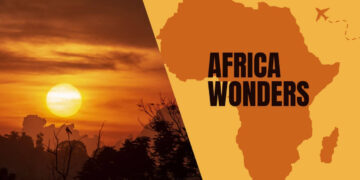African languages like many many other languages is the primary source of communication that is constantly being used practically in our everyday lives . According to (Cesar Chavez, 1972) “Language is a reflection of us”. It is how we communicate and convey our thoughts, feelings, and aspirations. The only way we can express our thoughts verbally, which sets us apart from other creatures. It would be similar to losing our tongue to losing our African languages. If I can’t speak while I have it, what good is it?
People can only utilize a language if it corresponds to their existing way of life, cultural background, and current usage. It must be effortless and relatable in the way they speak. Colonialism has had its way with the majority of third world countries. It has had its effect and impact both ways: positively and negatively. Most third world countries adapt eventually to the language of your colonial master.
The people of the land had to culturally assimilate to this. On a global scale , we have been somewhat unified through standardized communication in languages such as English , French , Portuguese , Spanish and the likes. However, this does not bring the indigenous identity of the people.
The fall of African languages
Through colonization , we realize that the African languages in some countries are gradually running extinct due to the inheritance and adaptation of their colonial master’s language. From an excerpt from Namibia News Digest , The San people speak a variety of African languages, which are clearly distinguished by their use of clicks, from Zimbabwe and South Africa through Botswana and Namibia.
The best illustration of how these African languages still have an impact on the peoples they encountered is isiXhosa, which incorporated clicks into speech. Unfortunately, several of these San languages are now extinct, including Khwe and !Xu. They join a long list of African languages that are now extinct, and as international languages like English and French continue to dominate, the survival of the world’s small language groups is becoming more and more in jeopardy.
Languages known as Creole languages emerged as a result of colonization. ‘Creole’ is and expresses the result of the Atlantic crossing and colonization. Through this intersection of colonialism , some countries have the language creole. The concept of creole is known to be pidgin language. Africa’s creole falls under the umbrella of the Atlantic Creole, which is a synthesis of European and African languages . These connections led to the emergence of six main Creole types: Arab, Portuguese, Dutch, Black Americans, French, and Dutch.
Black American Creoles are found in Sierra Leone, Liberia and are in scattered communities along the coast of Ghana. In South Africa, Dutch Creoles, also referred to as “Coloreds” or Cape Colored People, number more than 3 million. Small populations can also be found in Namibia and other southern African nations.
The majority of people who live in South Africa speak Afrikaans, a language with Dutch roots. French Creoles are mostly found on the islands of Seychelles and Mauritius. A small number of British Creoles, called Fernandinos, reside on the island of Bioko in Central Guinea . They are descended from freed slaves from Cuba and Sierra Leone who intermarried with colonizers from Cameroon, Ghana, Sierra Leone, and Nigeria. Portuguese Creole is found on Cape Verde.
Interestingly, future generations will no longer know and be able to respect their ancestors and the Aboriginal people through their African languages and culture. This will be forgotten as during colonization there has been a lot of transitions and cultural assimilations. The beauty and pride in speaking and knowing their mother tongue will be infiltrated, lost and culturally misappropriated and this will gradually run down from generation to generation till the world ends.
There is no doubt that colonization has brought a big change in Africa, but it being at the loss of our indigenous nature is something to take note of.










